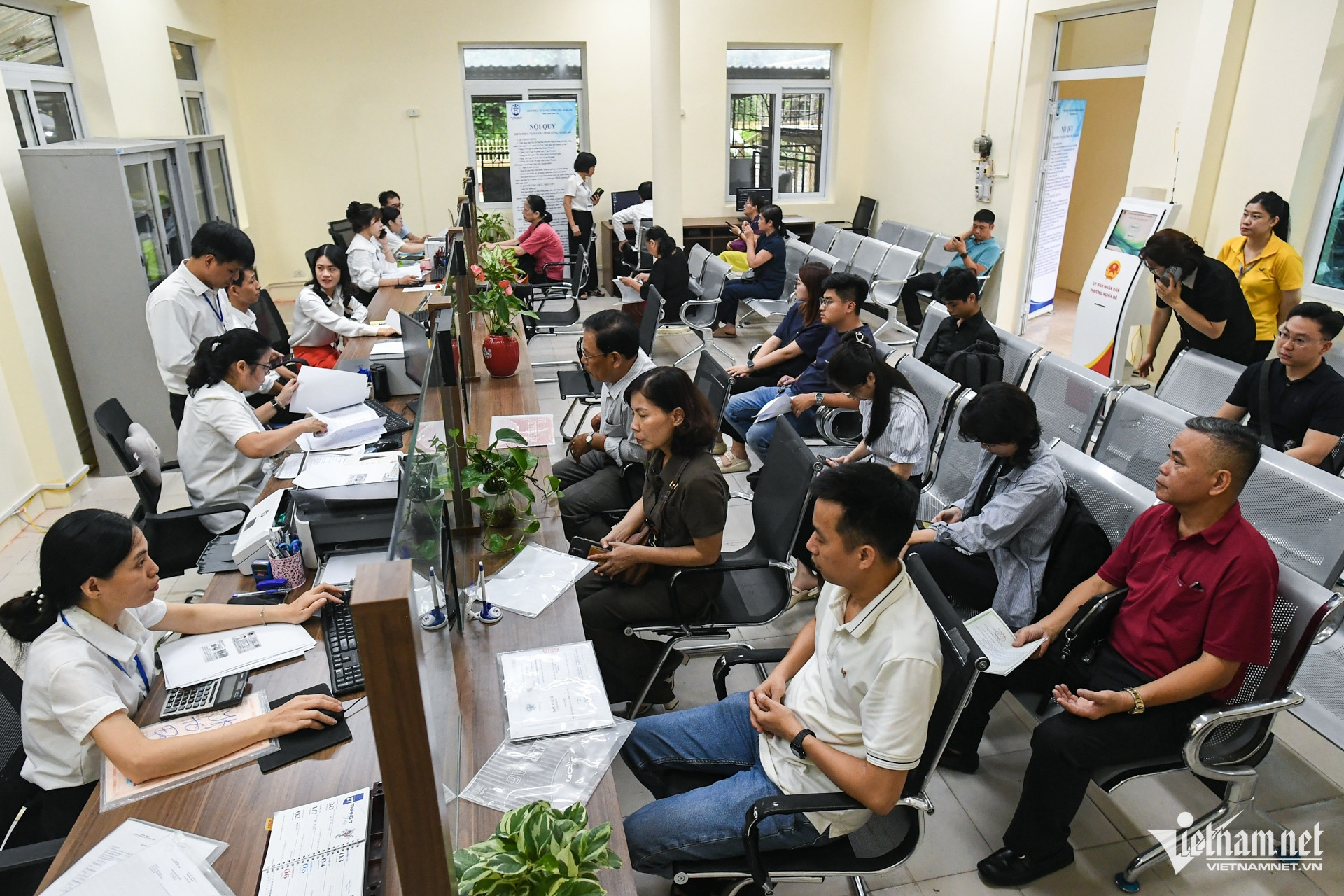
According to the Ministry of Home Affairs (MHA) as of June 30, ministries, agencies, and localities have reviewed and implemented policies for public servants, officials, and armed forces personnel during the political system’s organizational restructuring.
Reports indicate that 57,158 individuals were subject to organizational restructuring, with 43,207 having retired or resigned.
Regarding support funding, 25,611 individuals, accounting for 62.39 percent of those who left (excluding police and military personnel), received payments totaling VND26,947 billion.
MHA stated it will continue to monitor, compile data, and provide guidance within its authority on the implementation of the policies outlined in Decree 178.
Prior to that, to implement the policy on restructuring the apparatus in conjunction with streamlining the payroll, restructuring and improving the quality of the staff, civil servants and public employees, MHA advised the Government to issue Decree 178 that stipulates policies and regimes for cadres, civil servants, public employees, workers and armed forces when restructuring the apparatus of the political system.
These policies are deemed robust, facilitating the resolution of benefits for public servants, officials, employees, including those at the commune level and contract workers.
Following the Politburo’s Notification 75 adjusting the scope and beneficiaries of the policy, the Ministry proposed the promulgation of Decree 67 to amend and supplement Decree 178.
Additionally, the Ministry issued circulars guiding the implementation of these policies and sent documents to ministries, agencies, and localities with detailed instructions on applying Decree 178 and Decree 67.
Regarding staffing, after restructuring, provincial levels are expected to reduce over 18,440 public servant positions compared to the 2022 allocation. At the commune level (including wards and special zones), staffing is projected to decrease by more than 110,780 compared to the 2022 total for district and commune levels.
This reduction is achieved through reorganizing job positions, streamlining staff, and implementing retirement policies.
Immediate retirement benefits
MHA affirmed that it will closely coordinate with ministries, agencies, and localities to ensure compliance with regulations, safeguarding the rights of public servants, officials, and employees.
Recently, Deputy Minister of Home Affairs Truong Hai Long signed and issued Official Dispatch 4753 on resolving difficulties and problems in the process of implementing the 2-level local government model to provincial Party Committees, city Party Committees and People's Committees of provinces and centrally-run cities.
The key contents of the dispatch include arranging and resolving policies for public servants, officials, and employees; managing office premises; publicizing administrative procedures; and archiving or digitizing documents.
The Ministry emphasized that localities must address issues promptly and effectively to avoid delays, disputes, or disunity. For public servants, officials, or employees wishing to retire immediately, localities can apply Decree 178/2024 (amended by Decree 67/2025) and related regulations to promptly resolve their benefits.
Adjustments of base salary post-restructuring proposed
On July 8, during a six-month work review conference, Minister of Home Affairs Pham Thi Thanh Tra announced that the Ministry would propose adjustments to the base salary, position allowances, commune-level title allowances, regional allowances, and special allowances following the two-tier local government model implementation. Tra stated that these adjustments would be reviewed and balanced to ensure the benefits of public servants and officials.
From July 2024, the salary for public servants and officials is calculated based on a coefficient multiplied by a base salary of VND2.34 million per month.
Prior to that, during the National Assembly session in mid-June, several delegates urged early salary policy reforms, particularly for commune and provincial officials post-merger. Streamlining increases workloads and geographic coverage, necessitating reasonable salary policies to motivate and retain staff.
The Ministry is collecting opinions on a draft decree on evaluating and ranking public servant performance. A key highlight is that evaluations will occur throughout the year, with monthly and quarterly monitoring and scoring, rather than solely at year-end.
Final performance rankings must be completed by December 15, or January 15 of the following year for specific units.
Tra said her ministry will complete three ‘key products’ in July and to submit to competent authorities in August: proposal for salary and allowance plans for cadres and civil servants, especially at the grassroots level; content related to the implementation of the Law on Cadres and Civil Servants; and content on the organization of employees in enterprises.
These are all important issues, which will be commented on by the Standing Committee of the Party Committee of the Ministry before being submitted to the Standing Committee of the Secretariat and the Politburo.
N. Thao